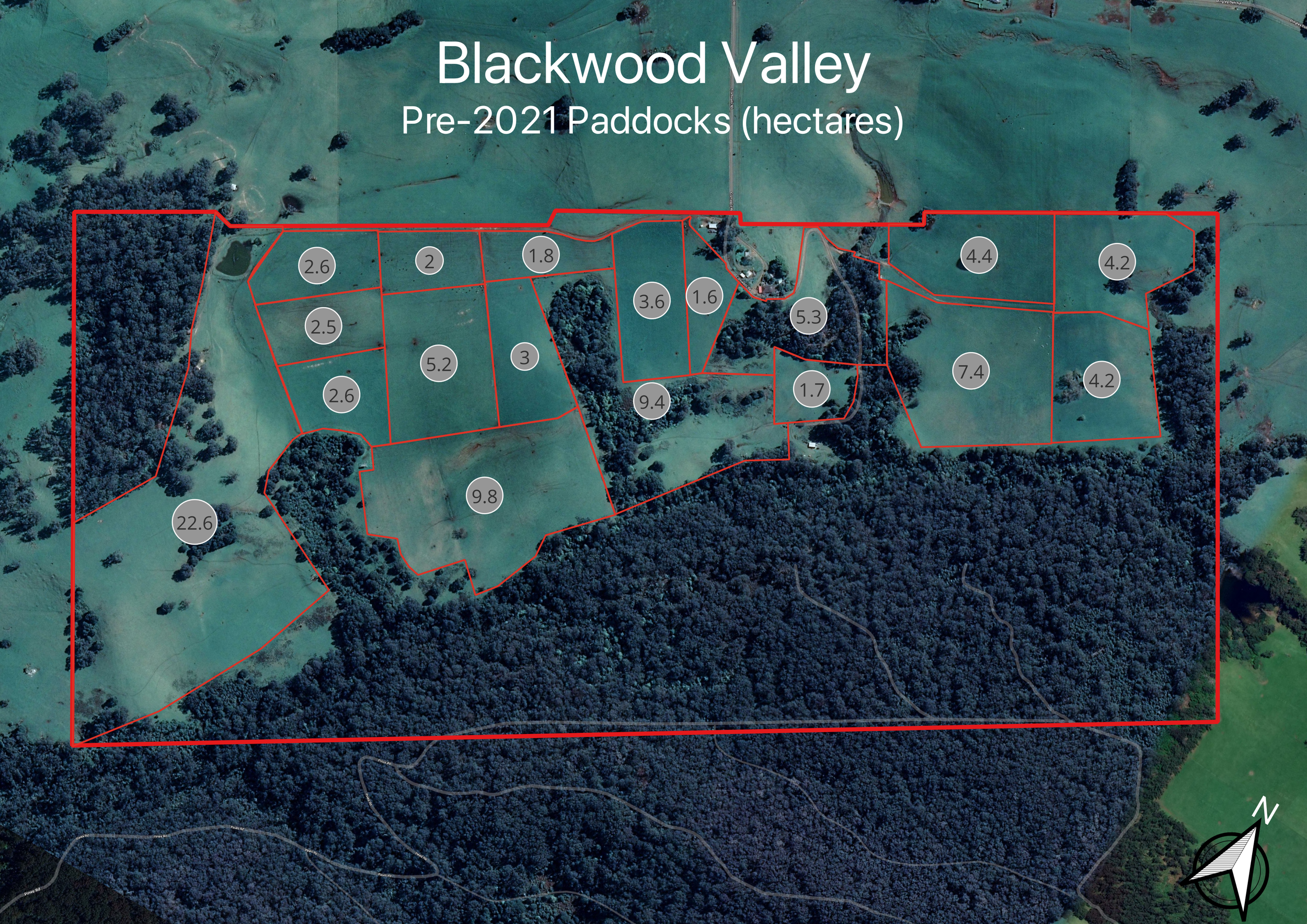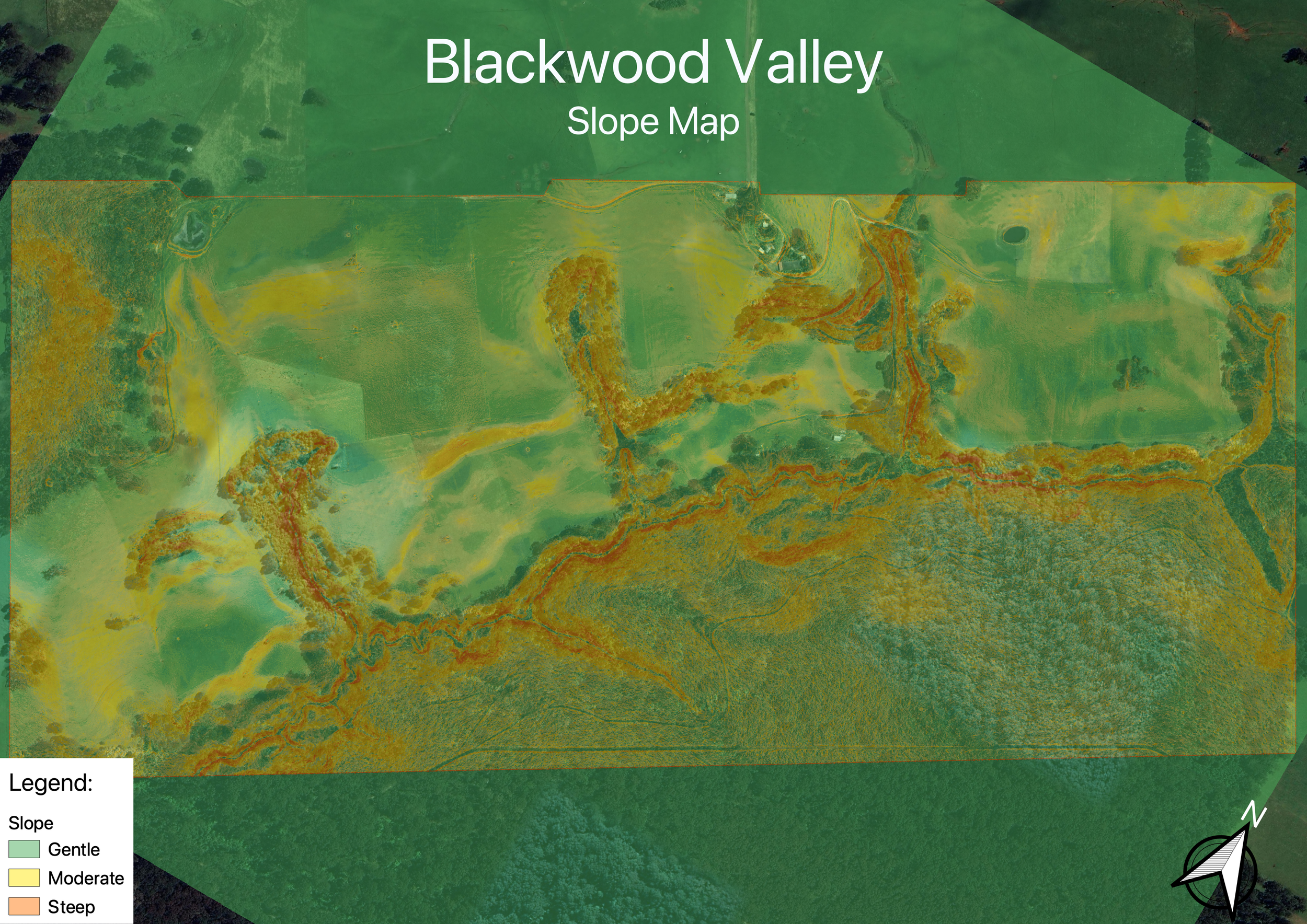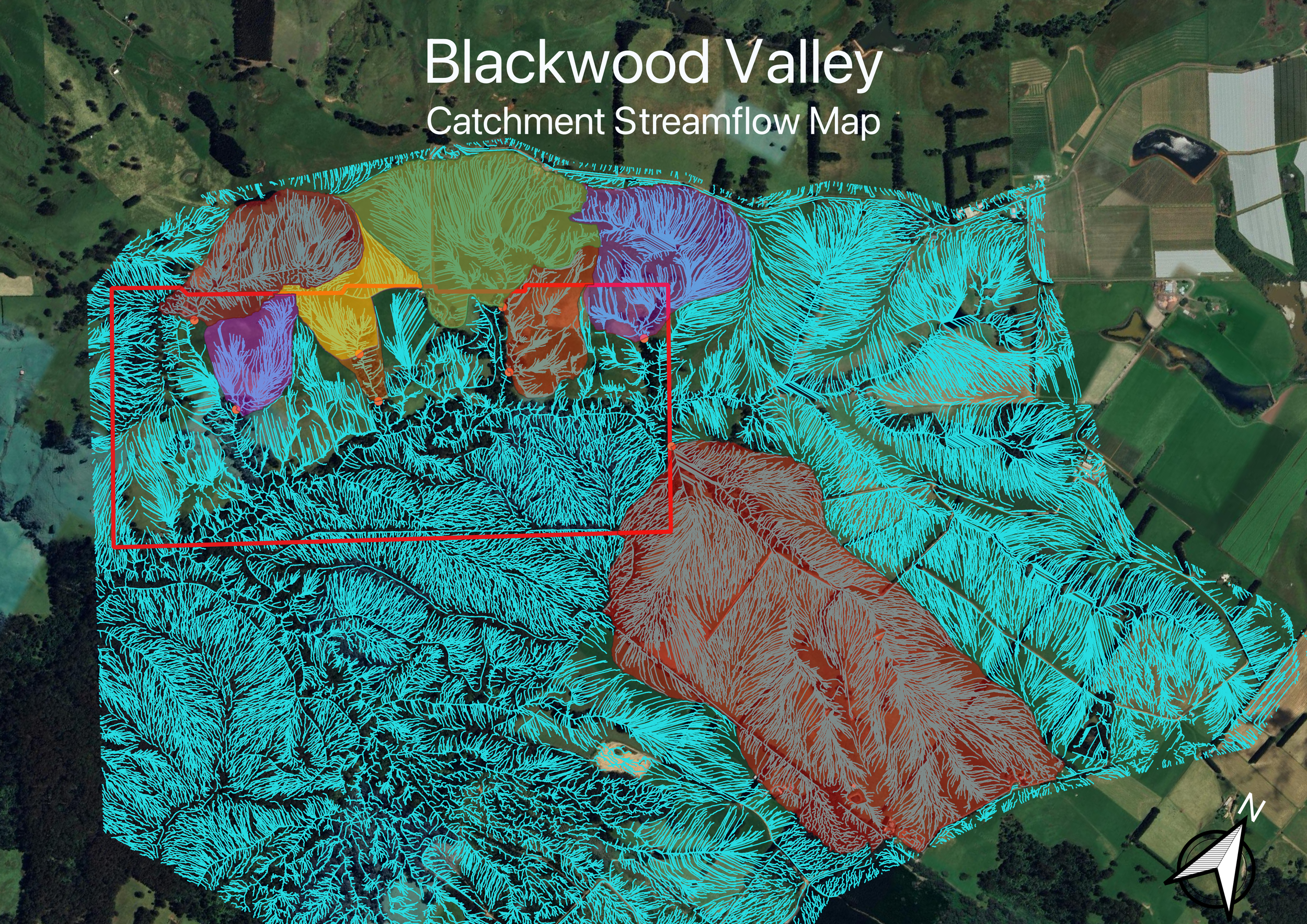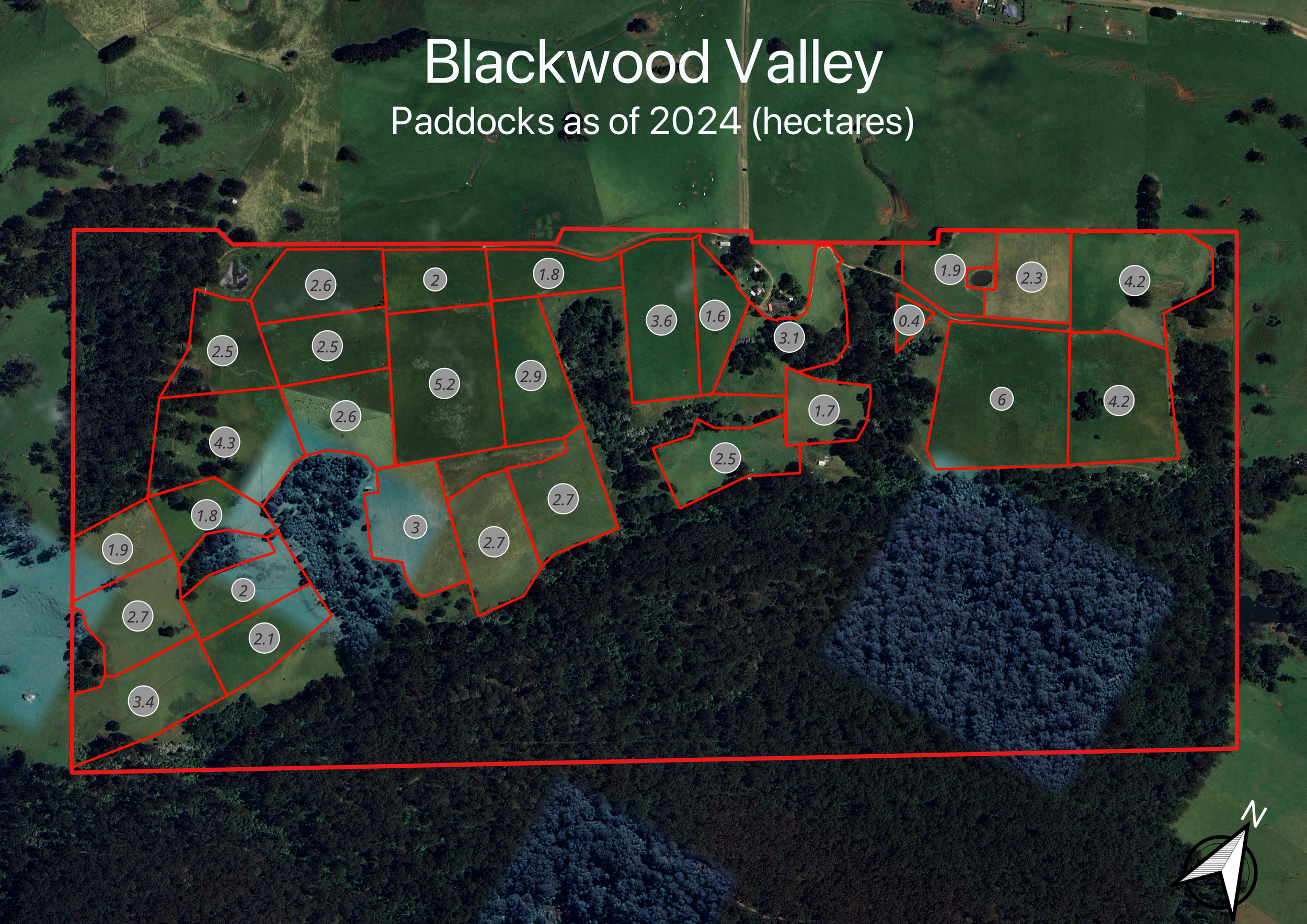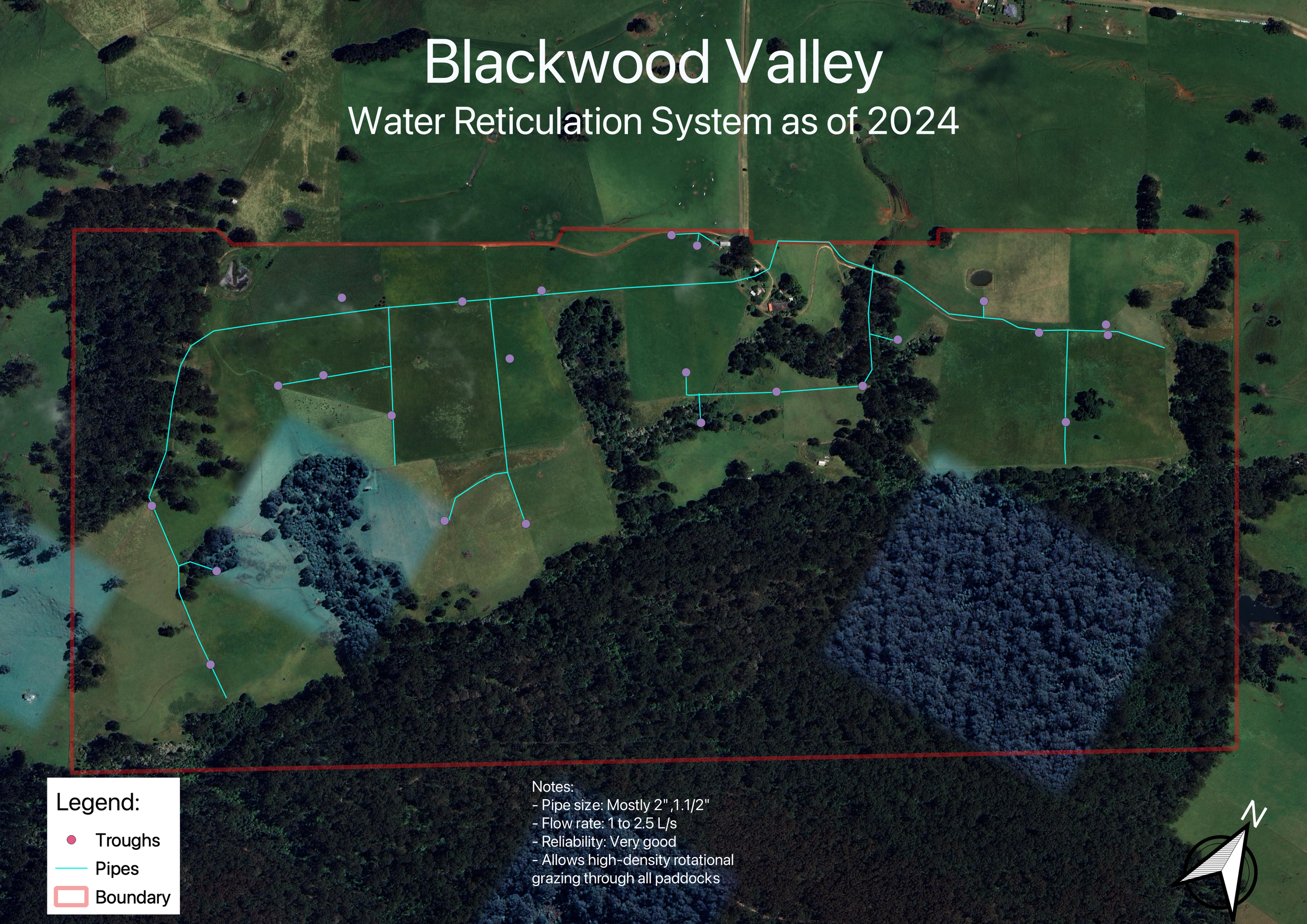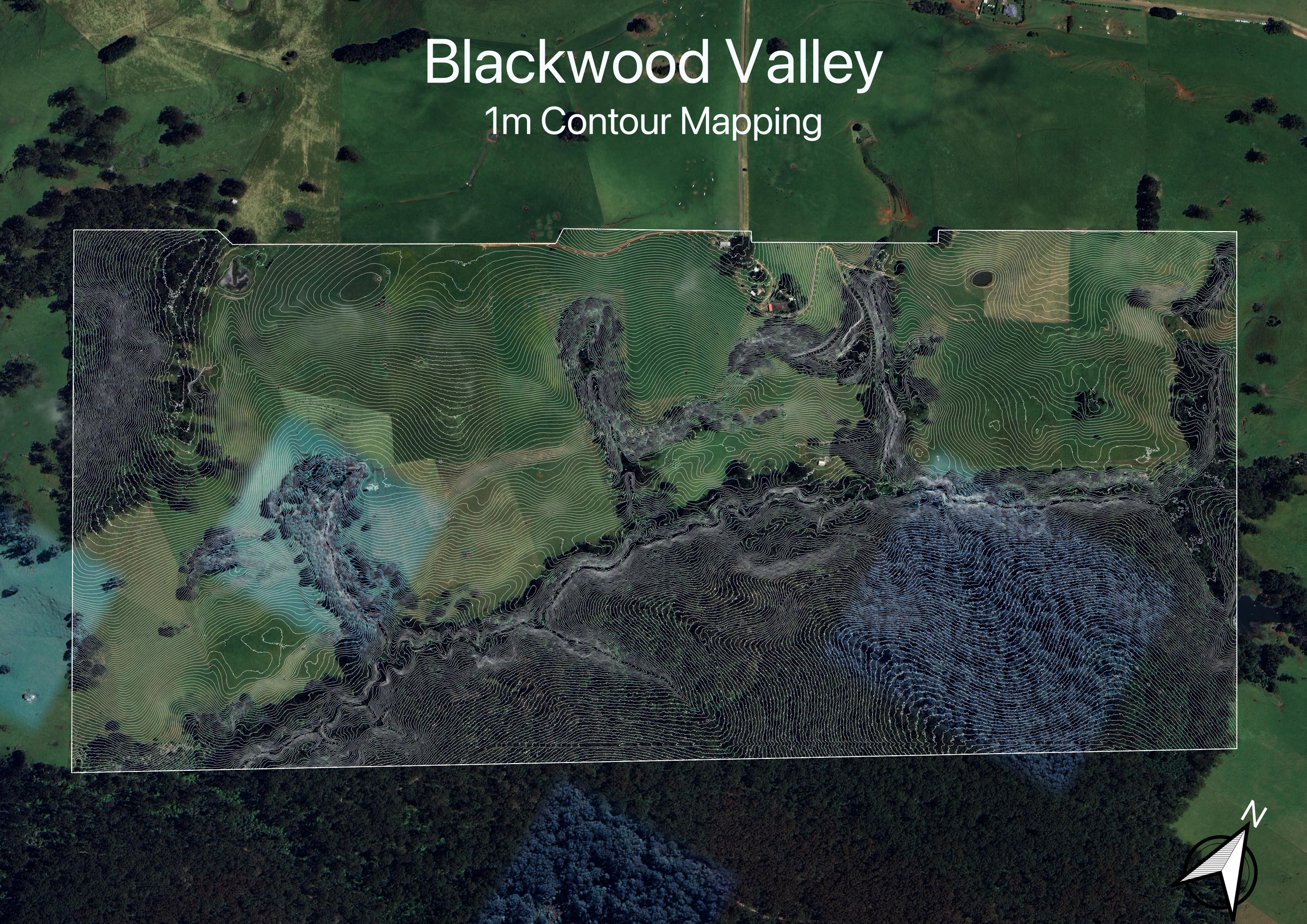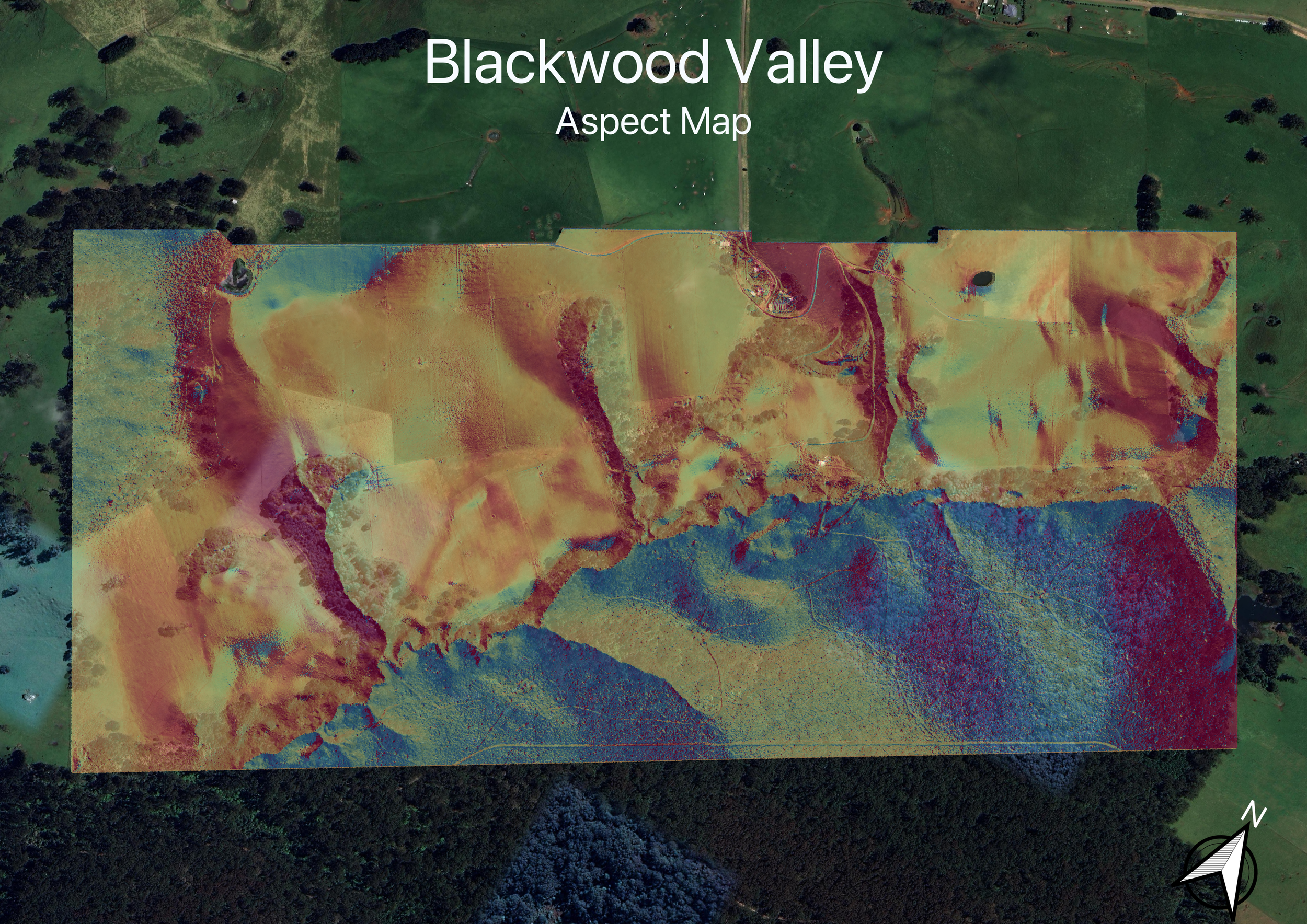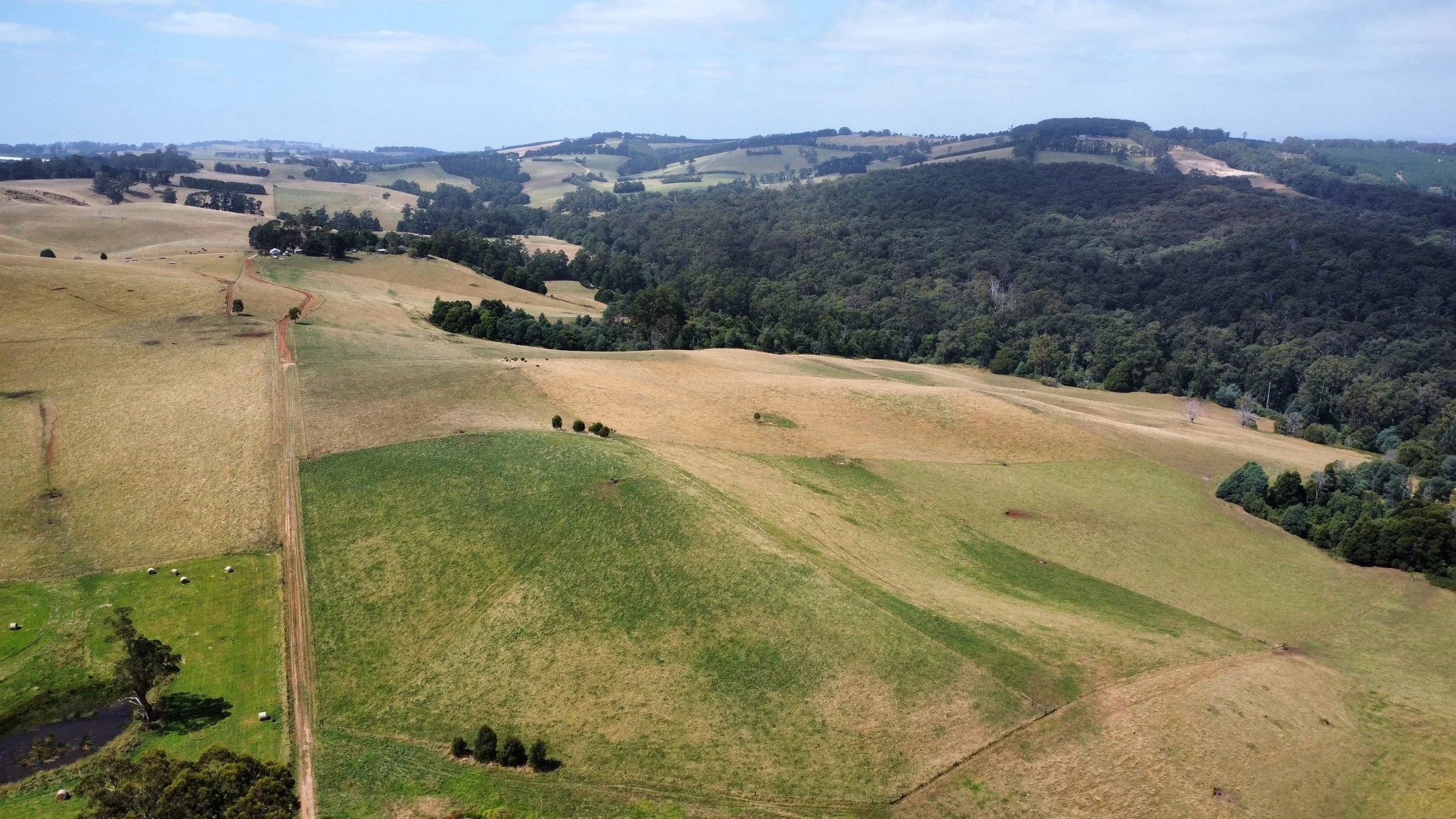
Case Study:
Blackwood Valley
A family farm’s transition to Regenerative Ag
Before:
Set-stocked grazing degrading pastures over time
Increasing requirements for fertilisers and herbicides
Feeding hay through summer and winter feed gaps
An inconsistent water reticulation system requiring stock to drink from dams
Very few trees in paddocks, putting pressure on stock in the heat of summer
Today:
Holistic Grazing with rest periods of 60-90 days. This is improving pastures over time and (almost) eliminating the need for supplemental feed of hay and silage.
More fencing on the farm, splitting large paddocks into smaller sections to implement Holistic Planned Grazing.
New water reticulation system providing consistent, high-flow water for cattle wherever they are on the farm. This was designed in conjunction with new fencing to ensure water availability.
Trials with SoilKee Renovator and multispecies forage crops to improve pastures. This has brought one paddock from the worst on the farm to the most consistent performer.
Trees planted on steep areas and throughout farm for livestock shade and shelter.
Visible improvements in animal health.
Future:
Management for (and planting of) a more diverse pasture species mix, including native C4 grasses to further enhance soil biology.
Reducing the number of mobs for ease of management.
More fencing in larger paddocks to reduce operational workload for cattle moves.
Installation of more Quick Coupling Valves (QCVs) to provide water access to fringe areas.
Installation of Natural Sequence Farming contours on the property to test their effectiveness in our context.
Planting trees for agroforestry throughout the property, especially in areas lacking shade and shelter.
Build and use a free choice mineral cart for cattle, ideally on a trailer to be moved each day.
Client
Blackwood Valley
Location
Thorpdale, Victoria
Size
463 acres (200 acres grazed)
Average annual rainfall
1000mm
Year
2021 until present
